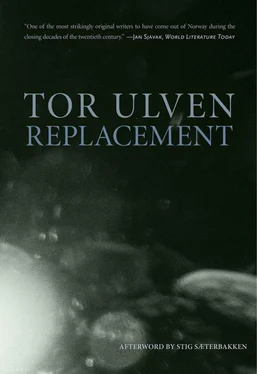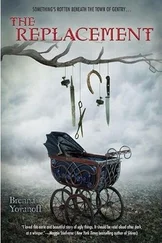The morning sun has reached the empty white flagpoles that stick up out of the enormous soccer field, which together with its walls of bleachers and narrow windows resembles a medieval citadel, and you recall that people have actually died in similar sports arenas, which come to resemble battlefields, and in a way are built for war, although they’re not meant to keep invaders out, but to keep opposing sides in; a long time ago, soccer games (presumably) took place off the field, and were (presumably) played in different ways from village to village, including, but not limited to, kicks and punches delivered to your opponent; therefore, you think, it was ultimately the demand for order, for game regulation that has since led to scenes of catastrophic disorder, when a mass of spectators, or at least one part of them, decide to run amok behind the arena’s protective, citadel-like, Romanesque walls, whereupon the strictly regulated playing field, with its white lines and banners, becomes a scene of terrifying chaos. You also think of all the betting slips you’ve turned in over the last twenty years, and the fact that you’ve never won much.
They’ve begun their leisurely springtime detonation, they’re more than buds now, and you can see how each chanterelle-shaped shoot (which looks like a tiny frozen splash) will soon explode to form a clearly defined leaf, whose bright, hazy green will eventually outshine the sooty, greenish-brown tangle of twigs, like a spotlight with a colored filter being turned up little by little until it reaches its full brilliance; eventually the bush will be covered by countless clusters of green leaves, and you’re suddenly reminded of the bushes at school all those years back, and how you could slide your thumb and forefinger up a thorny twig with a quick, firm motion and end up with a little rosette of leaves pinched between your two fingers, like a handful of tiny, green bills that were worth less than Monopoly money, that were only good for tossing in a playmate’s face. Cheap laughs. This summer will be as cold and rainy as it always is, you think. Somehow or other you’ve got to come up with the cash. You’re getting impatient. The reflection of light from an awning window being pushed out (on the top floor of the office building opposite) hits you squarely in the face, causing you to shut your eyes instinctively (a second too late, as always), though this time it’s only an intense, bluish white burst of light, as if a bomb were going off outside your window, accompanied by an almost simultaneous report (which literally causes the panes to rattle), and sounds more like a canon shot in a shipyard (or something along those lines) than a rolling, peeling crash of thunder heard at a distance ever does.
Lightning: it’s as if you’re watching your own optic nerves light up and burn, light up and burn, cremated again and again, grotesquely magnified, an atmospheric neurology, there one moment and gone the next, there one moment, gone the next, remembered and forgotten, remembered and forgotten, deciphered and indecipherable, present and absent, living and unliving, somehow comparable to, no, somehow entangled with the delicate, nebulous skeletal outline (as if a breath would be enough to blow it away) that seems to float in a dark, secluded space, suspended in a glass brimming with darkness, a separate universe, made of a material both stiff and pliable, and (even in the irrevocably frozen images in your X-ray photographs) seemingly dynamic, as though in a state of perpetual, imperceptible motion (like a goldfish suspended in a bowl seems motionless until, upon closer observation, you find that’s it’s been fluttering its tiny, trivial body parts all along); from the side, it looks like your vertebrae are disconnected, drifting weightlessly (and soundlessly) apart; it reminds you of a building exploding in slow motion (although, in this case, it’s a pipe-like structure that’s being blown to bits), or, more abstractly, of a nebula or some other astronomical phenomenon (which exists in a state of continual expansion or contraction) as represented in an encyclopedia or popular science magazine; these formations are often named after the objects they resemble, and in the photo it looks like your vertebrae, stacked one upon another, are staring at you with large, round, black eyes, like a bumblebee’s. Suddenly, you find yourself thinking about flowers and honey.
As simple as this (accompanied by a date, the institute’s logo, the doctor’s name, and a signature that’s apparently handwritten, although upon closer inspection you realize it’s been stamped on): Normal result in lumbosacral column with iliosacral joint . Theoretically, you could examine the X-rays in the glow of the lightning, although in practice the bursts are way too short; twenty minutes ago (you were twenty when the X-rays were taken), while thunderheads gathered in the sky, you were forced to turn on the lamps. Outside it’s nearly black as night (but this darkness is different, it’s a leaky darkness, half-permeated by the sun, which leads to a realization you’ve never had before, namely that the sun must’ve been shining the whole time, completely unfazed by the storm raging below; maybe you’d assumed that storms somehow swallow the sun?), and your X-rays, scattered around the lamp’s bare bulb (you’ve taken off the lampshade), seem completely dark, their smooth, matte surfaces vaguely reflecting the brighter objects in their vicinity.
At first glance, they seem blank. It’s only when you, a balding, fifty-year-old man, hold them up to the light that you’re able to see your twenty-year-old skeleton, from a time when, aside from a mild case of hypochondria, you were still young and strong. After being blinded by an odd, double burst of lightning (as if the first bolt had been reflected off a giant mirror; you have to blink a couple of times, as after staring into a flashbulb), you turn back to the table. Zipper and button seem to float in the dark space above your hips and the lower part of your spine. You remember them telling you to undo your button and open your fly so that the skeleton beneath would come through clearer, the ghostly image of vertebrae gradually shrinking toward the tailbone, the bifurcated hip sockets that seem astonishingly round and thick, like chicken legs or like pale, round rolls, the groin, that is, though the X-ray machine, you think, was clairvoyant, it didn’t see the flesh, because it looked straight through your genitals and into the bare bones beneath.
Maybe that’s the reason you’ve always liked thunderstorms, because it was storming back then too. That was later in the year, though, toward the end of summer. Yes, that’s got to be the reason you love both thunder and X-rays, X-rays and lightning. Perhaps the lightning’s electricity could make the skeleton in the X-rays come alive. An umbrella. A red umbrella. The rain was streaming down, pouring down, roaring in sheets toward the ground, as if someone had turned on the power wash in a utility sink, water splashed over the asphalt in foaming, gurgling, bubbling waves; after only ten minutes the water in the gutter was so deep that cars (including an incessant stream of taxis, their signs all dark) were plowing meter-high angel wings of water into the air, and her umbrella, how she’d wrestled with it against the wind, which had pushed back at her so that she was swaying on her feet, and you helped her bend the umbrella back when the wind blew it out of shape, you had neither umbrella nor raincoat and you’d never seen her before in your life, though you didn’t really see her then either, not yet, not there at the taxi stand, not beneath her umbrella (you hardly noticed how exhausting it was to stoop and bend your knees; she was almost a head shorter than you), but you helped her steady the umbrella against the wind and the rain, though that was just an excuse of course, since she would’ve been fine by herself; every once in a while, your hand would brush hers (but only brush, at that point you were careful not to seem too forward); no, it wasn’t a strategy, not exactly, you just didn’t want to seem too pushy, you were terrified she’d get angry, or offended, and so you refused to get under her umbrella with her, which meant you had to make do with your squishy shoes and your pitifully thin summer jacket, which was totally soaked through (though that wasn’t what worried you). You shivered so much that your teeth chattered from the cold, or maybe you just shivered out of nervousness, and, finally, when there was only one person in line in front of her, or in front of you both, you were terrified she’d just climb into a taxi and disappear forever (since you didn’t even know her name), and so you cleared your throat and asked where she was going, and she told you, and you lied, you flat out lied, you feigned surprise at the amazing coincidence, and you actually had to repeat yourself, because a sudden blast of thunder had drowned out your impromptu falsehood, but repeat it you did.
Читать дальше












